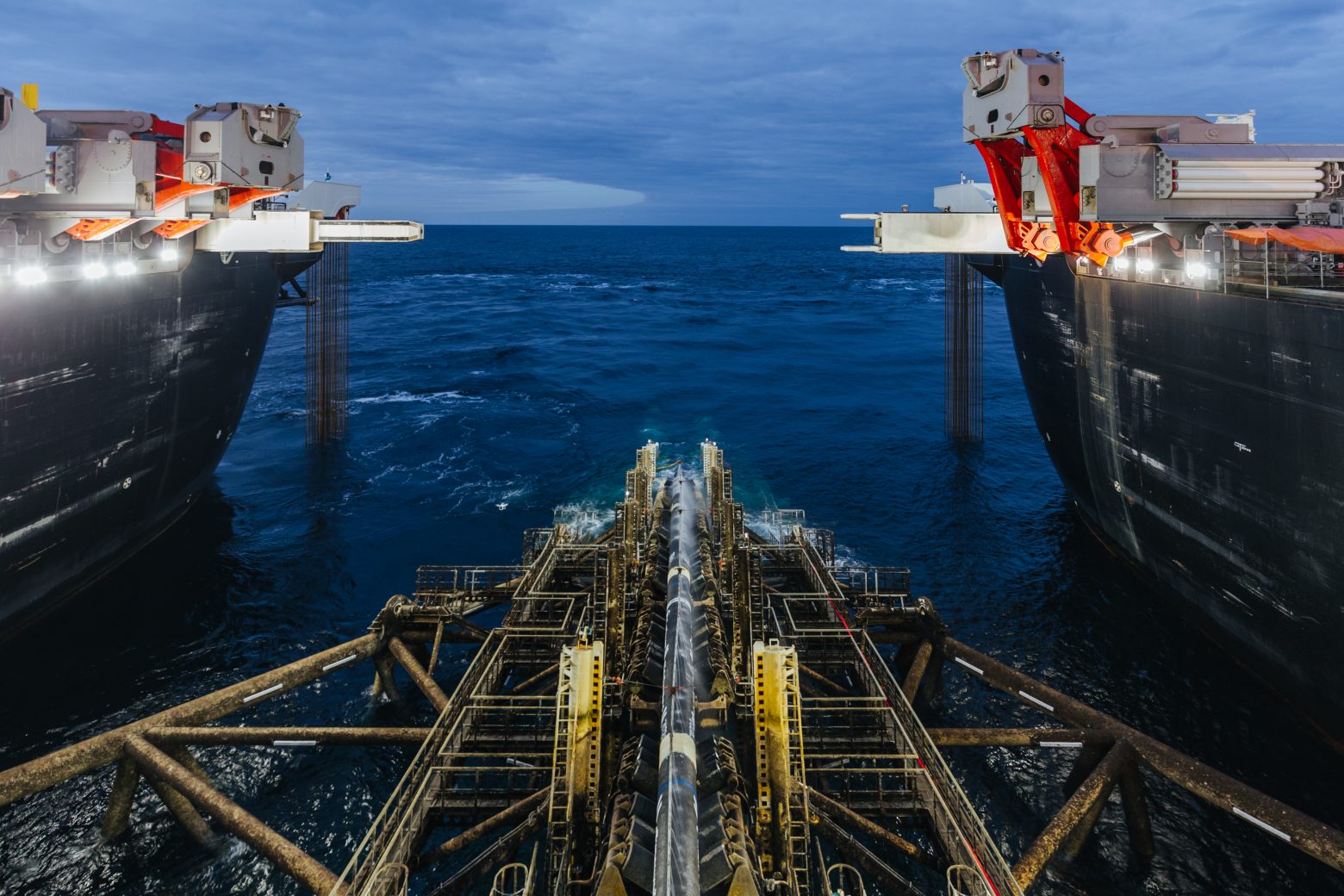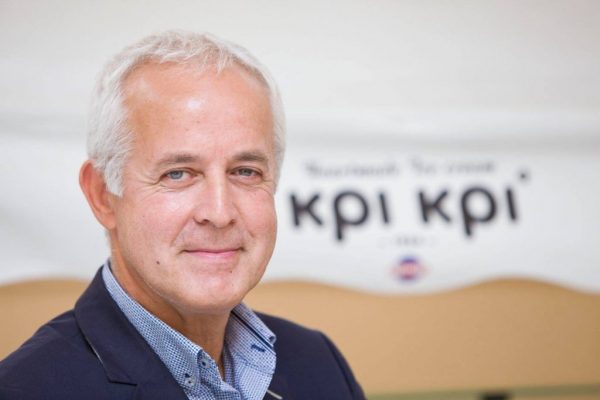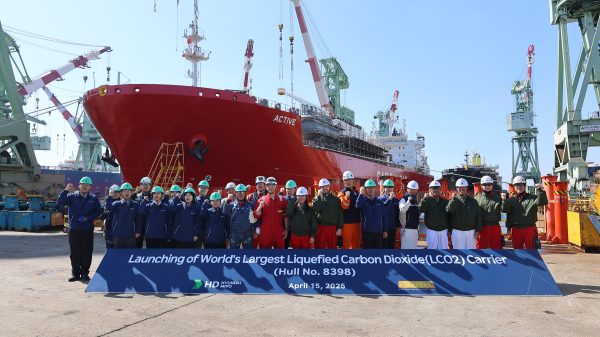
Greece is in the middle of a “cold war” for the control of gas pipelines and other energy resources to Europe, with the result that our country loses many opportunities to develop into a transit energy hub.
Recent developments with the EastMed gas pipeline, which the US torpedoed, although until recently supported either by statements by US officials or by Washington’s participation in international forums and initiatives (3 + 1 Greece-Israel-Cyprus alliance) and the USA), bring to the fore the behind-the-scenes conflicts of geopolitical and business interests in the energy sector.
The pipeline “cold war” in the southeastern Mediterranean and in the heart of the Old Continent is intensifying due to the energy crisis and the transition to clean energy. Europe’s thirst for energy and its dependence on the interests of third parties is evident. Russian gas, for example, covers one-third of the needs of EU countries. Israel and the Cypriot EEZ.
Greece, geographically at the crossroads… of the transportation of fossil fuels from the deposits of the southeastern Mediterranean to the large consumer Europe, seeks to play the role of an energy hub. The pursuit of this goal, however, often leads her to conclude diplomatic alliances with diverse interests, which most often leave her with investment plans for pipelines and other energy infrastructure in hand…
STILL ALIVE ON PAPER.
Major projects such as the Russian-owned Burgas-Alexandroupolis oil pipeline and the South Stream and Turk Stream gas pipelines have collapsed following pressure to push US-owned pipelines such as TAP.
EastMed, a project launched against Russia’s Gazprom, is facing fire from Turkey, which is challenging its transit route (presuming the Turkish-Libyan memorandum), as well as US arguments for provoking geopolitical tensions in the SE Mediterranean region. cleaner forms and technologies of energy.
EASTMED AND LNG.
The revelation of the American stance towards the Israel-Cyprus-Greece-Italy (EastMed) pipeline with the recent non paper and the official statements of the State Department, for many was not a bolt out of the blue.
According to diplomatic and business sources quoted in “NEA” newspaper, “the United States has publicly stated its support for the 1,900 km pipeline that aims to transport quantities of natural gas from the Levantine and Cypriot EEZ fields to Europe, but we must not forget that At the same time, their great interests in energy are in the production and transport of liquefied natural gas (LNG) quantities “.
Indeed, the United States climbed to the top of LNG exporters last month, surpassing Qatar. From 2010 until today, US gas production (shale) has jumped by 70%, while the US Energy Information Administration estimates that by 2022 exports will reach 11.5 billion cubic feet per day. In other words, they will cover 22% of the global LNG demand.
Since December, the energy crisis caused by the reduction of Russian gas flows to Europe, thus reacting to the blockade of the Nord Stream 2 pipeline by Moscow, has been showing signs of de-escalation. More and more US LNG shipments are arriving in Europe, to some extent meeting the continent’s energy needs.
The same sources underline the above facts in “NEA”, seeking to substantiate their positions regarding the American interests in favor of LNG vis-à-vis the EastMed pipeline.
EastMed has been part of EU projects of common interest since 2013. Brussels considers the pipeline of strategic importance for the diversification of energy sources. In fact, in January 2020, a transnational agreement was signed in Athens between Greece, Cyprus and Israel for the implementation of the project.
The consortium running the investment project, IGI Poseidon (DEPA Commerce and Edison), conducts studies and continues the technical procedures for the maturation of the pipeline, in order to make the investment decision. Company sources speaking to “NEA”, after the latest developments for the EastMed pipeline, insist on the technical and financial viability of the project and especially with the current prices of natural gas. They emphasize that they continue their work for the implementation of the pipeline.
Last year, the Greek and Israeli sides, through the competent Ministries of Energy, attempted the presentation and promotion of an alternative route of EastMed. That to the Balkan countries.
According to “NEA” quoting competent officials, countries such as Bulgaria, Romania, Serbia, Slovenia, North Macedonia and Kosovo in the coming years will have annual gas needs of about 12 to 13 billion cubic meters. In fact, Minister Costas Skrekas, in a joint letter with other Balkan ministers, sought to extract new support from Brussels.
Diplomatic and business sources tell “NEA” that since last autumn, US officials in meetings with Greek officials have been timidly showing a change in their attitude towards EastMed, citing the promotion of cleaner energy technologies.
The US torpedoing EastMed is also accompanied by the lukewarm stance of the new Israeli government towards that of Netanyahu, as diplomatic circles observe, while business sources do not rule out, speaking to “NEA”, that a diplomatic approach of Jerusalem with in the energy part. Turkey has also never wanted EastMed, and recent harassment by the pipeline consortium’s research vessel confirms its intentions.
THE LOST PIPELINES.
Athens lost other battles with ambitious energy investment plans. The Burgas-Alexandroupolis oil pipeline was a multi-year plan aimed at transporting Russian oil, avoiding the Dardanelles Straits and essentially Turkish supervision. The 280km pipeline from the Bulgarian port of Burgas to the port of Alexandroupolis was signed in 2007 by Costas Karamanlis, Russian President Vladimir Putin and Bulgarian President Georgi Parvanov. Four years later, in 2011, the Bulgarian side backed down, citing environmental impact.
Diplomats attributed the plan’s failure to intense US pressure on Sofia.
In 2008 another Russian pipeline, South Stream, aimed to transport Russian gas to the Balkans, Greece and then Italy. That year our country under the government of Costas Karamanlis had signed its participation in the pipeline. The American factor then appeared with the Nabucco pipeline, which would transport gas from faraway Iraq and reach the Balkans via Turkey.
The next Greek government abandoned the South Stream project, while the Americans replaced the Nabucco with the TAP pipeline, which was implemented to transport quantities from Azerbaijan to Italy and the Balkans.
In 2015, the Tsipras government ran the investment plan of Greek Stream, the pipeline that would be a continuation of Turk Stream. Through this branch from Turkey, the Russians sought to bypass Ukraine by replacing the quantities of natural gas to European countries through another route. The IGI Poseidon consortium had environmentally licensed the Greek part of the Evros – Thesprotia – Italy pipeline.
However, this investment plan was abandoned, with the Russians turning the Turk Stream to Bulgaria instead of Alexandroupolis.
The new projects that have found support
In recent years, and especially since 2019, the United States has placed great emphasis on the implementation of two energy infrastructures in Greece.
One is the floating LNG storage and offshore gasification station of Alexandroupolis. The project, also known as FSRU Alexandroupolis, has been completed in terms of the shareholding structure, the partial financing from European resources and now the construction work has to start. Its budget is 363.7 million euros. FSRU Alexandroupolis will be the fourth gateway for natural gas import in our country with a maximum supply capacity of up to 944,000 cubic meters (sq.m.) per hour or 8.3 billion sq.m. annually and with a storage capacity of 170,000 sq.m. liquefied natural gas (LNG).
Through a pipeline that will reach Alexandroupolis, it will be connected to the National Natural Gas System and will channel natural gas both to the Greek market and to the Balkans through other pipelines.
One such, which also enjoys American support and is under construction is the Greek-Bulgarian (IGB). The project, which has been delayed in its implementation due to the pandemic, is expected to be operational in the second half of the year and will transport gas to Bulgaria and other countries via the TAP pipeline.
Greece also recently signed memoranda of cooperation for the development of an electricity interconnection and a gas transmission pipeline with Egypt. The design of the Israel – Cyprus – Greece electrical interconnector is also in progress . And these projects are supported by the US. At least so far…
Latest News

German Ambassador to Greece Talks Ukraine, Rise of Far Right & Tariffs at Delphi Economic Forum X
Commenting on the political developments in his country, the German Ambassador stressed that it was clear the rapid formation of a new government was imperative, as the expectations across Europe showed.

Athens to Return Confiscated License Plates Ahead of Easter Holiday
Cases involving court orders will also be excluded from this measure.

Servicers: How More Properties Could Enter the Greek Market
Buying or renting a home is out of reach for many in Greece. Servicers propose faster processes and incentives to boost property supply and ease the housing crisis.

Greek Easter 2025: Price Hikes on Lamb, Eggs & Sweets
According to the Greek Consumers’ Institute, hosting an Easter dinner for eight now costs approximately €361.95 — an increase of €11 compared to 2024.

FM Gerapetritis Calls for Unified EU Response to Global Crises at EU Council
"Europe is navigating through unprecedented crises — wars, humanitarian disasters, climate emergencies," he stated.

Holy Week Store Hours in Greece
Retail stores across Greece are now operating on extended holiday hours for Holy Week, following their Sunday opening on April 13. The move aims to accommodate consumers ahead of Easter, but merchants remain cautious amid sluggish market activity.

Green Getaway Ideas for Easter 2025 in Greece
Celebrate Easter 2025 in Greece the sustainable way with eco-farms, car-free islands, and family-friendly getaways rooted in nature and tradition.

Civil Protection Minister Details Summer Firefighting Plans at Delphi Forum
At the 10th Delphi Economic Forum, Minister of Climate Crisis and Civil Protection Yiannis Kefalogiannis discussed Greece's plans for the upcoming fire season.

How Shops and Markets Will Operate During Easter Holy Week
The Easter holiday schedule has been in effect since April 10, with retail stores open Palm Sunday, and most supermarkets also operating to meet consumer demand for Easter shopping

Why Is the French Aircraft Carrier Charles De Gaulle in Piraeus?
Docking in Piraeus after a four-month deployment in the Indo-Pacific region, the admiral of the aircraft carrier the Charles de Gaulle says, "Greece is our best partner in the Mediterranean."








































 Αριθμός Πιστοποίησης
Αριθμός Πιστοποίησης